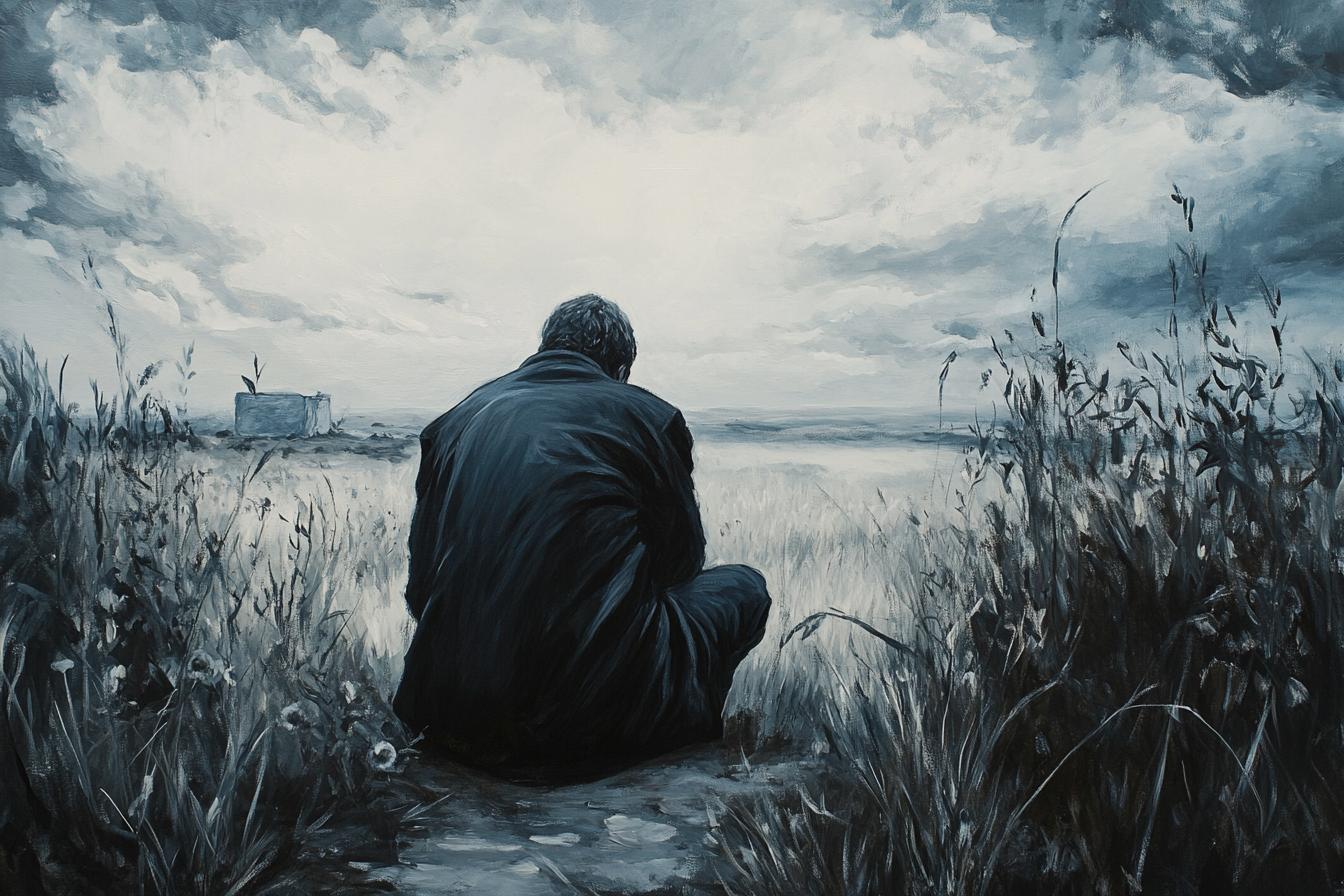Poetry, with its lyrical language and evocative imagery, often serves as a conduit for exploring the depths of human emotion, particularly grief. This association stems from the inherent power of poetry to delve into the complexities of loss, allowing individuals to process their sorrow and find solace in shared experiences. Grief, in its multifaceted nature, can be overwhelming and isolating, leaving individuals searching for ways to articulate their pain and find meaning in the face of loss. Poetry provides a framework for this exploration, offering a space to articulate the raw and often chaotic emotions that accompany grief.
Furthermore, the beauty and artistry of poetry offer a profound sense of catharsis for those grappling with grief. The rhythmic flow of words, the evocative imagery, and the emotional resonance of the language can create a cathartic release for the reader, allowing them to process their own grief in a safe and symbolic space. Many renowned poems, such as “Ozymandias” by Percy Bysshe Shelley or “Do Not Go Gentle into That Good Night” by Dylan Thomas, explore the themes of loss, mortality, and the enduring power of human spirit. These poems serve as reminders that grief is a universal experience, and through the shared language of poetry, we can find solace and understanding in the face of our own personal losses.

1. Why Is Poetry Often Associated with Grief
Poetry, with its lyrical language and emotional depth, provides a powerful platform for exploring the intricacies of human experience, including the profound and often overwhelming feeling of grief. The art form offers a space for individuals to process their pain, sorrow, and loss in a way that transcends mere words. Poetry allows us to delve into the depths of our emotions, unpacking the complexities of grief and finding solace in the shared human experience.
Moreover, poetry’s ability to capture the nuances of grief, from the sharp sting of loss to the quiet ache of longing, resonates deeply with those who have experienced this profound emotion. Through evocative imagery, vivid metaphors, and heartfelt confessions, poets can illuminate the multifaceted nature of grief, offering a sense of understanding and validation to those grappling with their own experiences. The raw honesty and vulnerability inherent in many poems allow readers to feel seen and heard, creating a sense of connection and shared humanity.
2. Poetry expresses deep emotions
Poetry, by its very nature, delves into the depths of human experience. It uses language in a way that allows poets to explore and communicate the full spectrum of emotions, both joyous and sorrowful. When we read a poem, we often find ourselves drawn into the speaker’s world, experiencing their feelings as if they were our own. This is particularly true when the poem explores themes of loss, longing, or regret.
Grief, as a powerful and often overwhelming emotion, naturally lends itself to poetic expression. Poetry offers a space for processing and understanding the complexities of grief. It allows poets to articulate the raw and often indescribable pain, the sense of emptiness, and the yearning for what is lost. By putting these feelings into words, poets can help us make sense of our own grief and find solace in shared experiences.
3. Grief is a powerful emotion
Grief is a profound and complex experience that can profoundly impact our thoughts, feelings, and behaviors. It can be overwhelming, leaving us feeling lost, confused, and even angry. This intense emotional response often compels us to seek solace and understanding, pushing us to articulate our pain and search for meaning in the face of loss. Poetry, with its capacity to capture the nuances of human emotion, provides a powerful outlet for grieving individuals to explore their inner turmoil and grapple with the complexities of loss.
Furthermore, the evocative nature of poetry allows grief to be expressed in a way that transcends simple words. Poets use imagery, metaphors, and rhythm to create a tapestry of emotions that resonate deeply with readers who have experienced similar pain. Through these artistic expressions, grief is not merely acknowledged but transformed into something beautiful and enduring, offering a sense of catharsis and connection with others who understand the depths of loss.
4. Poetry provides solace and catharsis
Poetry, with its lyrical language and evocative imagery, offers a unique space for individuals to grapple with grief. The act of writing or reading poetry allows for the exploration of raw emotions, providing an outlet for processing pain and loss. By putting feelings into words, individuals can externalize their grief, creating a tangible representation of their experience. This process can be incredibly cathartic, helping to release pent-up emotions and foster a sense of understanding and acceptance.
Furthermore, poetry can offer solace by connecting individuals with others who have experienced similar pain. Reading poems about grief can validate personal experiences and offer a sense of shared humanity. Additionally, the beauty and elegance of language in poetry can provide a sense of peace and transcendence, offering a temporary respite from the overwhelming nature of grief. Poetry, in essence, can act as a balm for the soul, providing a space for reflection, healing, and ultimately, moving forward.
5. Grief inspires introspection and reflection
Grief, in its raw and unyielding nature, compels us to look inward, to confront the depths of our own being. It forces us to confront the fragility of life, the fleeting nature of our connections, and the profound impact of loss. This process of introspection often leads to a reassessment of our values, priorities, and perspectives. We may question our place in the world, our purpose, and the meaning we find in our experiences. Grief, in this way, becomes a catalyst for personal growth, urging us to examine our lives with a renewed sense of awareness and understanding.
Furthermore, grief invites us to reflect on the relationships we have lost and the memories we hold dear. It encourages us to revisit the past, to cherish the moments we shared, and to find solace in the enduring power of love. This reflection can lead to a deeper appreciation for the beauty and fragility of life, and a renewed sense of gratitude for the connections we have and the time we have together. Through this process of reflection, grief can transform into a source of wisdom, strengthening our bonds with those we love and enriching our understanding of the human experience.
6. Poetry allows for vulnerability and honesty
Poetry, by its very nature, invites us to explore the depths of our emotions, including the often-painful territory of grief. Unlike other forms of expression, poetry does not require a rigid structure or a detached perspective. Instead, it encourages us to embrace raw feelings, to delve into the messy complexities of sorrow, and to express them without pretense. This openness allows poets to confront their grief head-on, to examine its nuances, and to share their experiences in a way that resonates with readers.
The vulnerability inherent in poetry fosters a sense of honesty. When poets write about grief, they are not simply reciting facts or offering solutions. They are revealing their own inner world, their own struggles, and their own journey through loss. This honesty, in turn, creates a powerful connection between the poet and the reader. Readers recognize the universality of grief, and they find solace and understanding in the shared experience.
Conclusions
So, there you have it! Poetry and grief go hand in hand, and for good reason. Poetry allows us to express those deep, powerful emotions that grief brings, giving us a space to explore our pain and find solace. It helps us reflect on our experiences, and it encourages us to be vulnerable and honest with ourselves. Whether it’s finding comfort in the words of a poet who understands our sorrow, or pouring our own feelings onto the page, poetry offers a unique way to process grief and find meaning in the face of loss.

